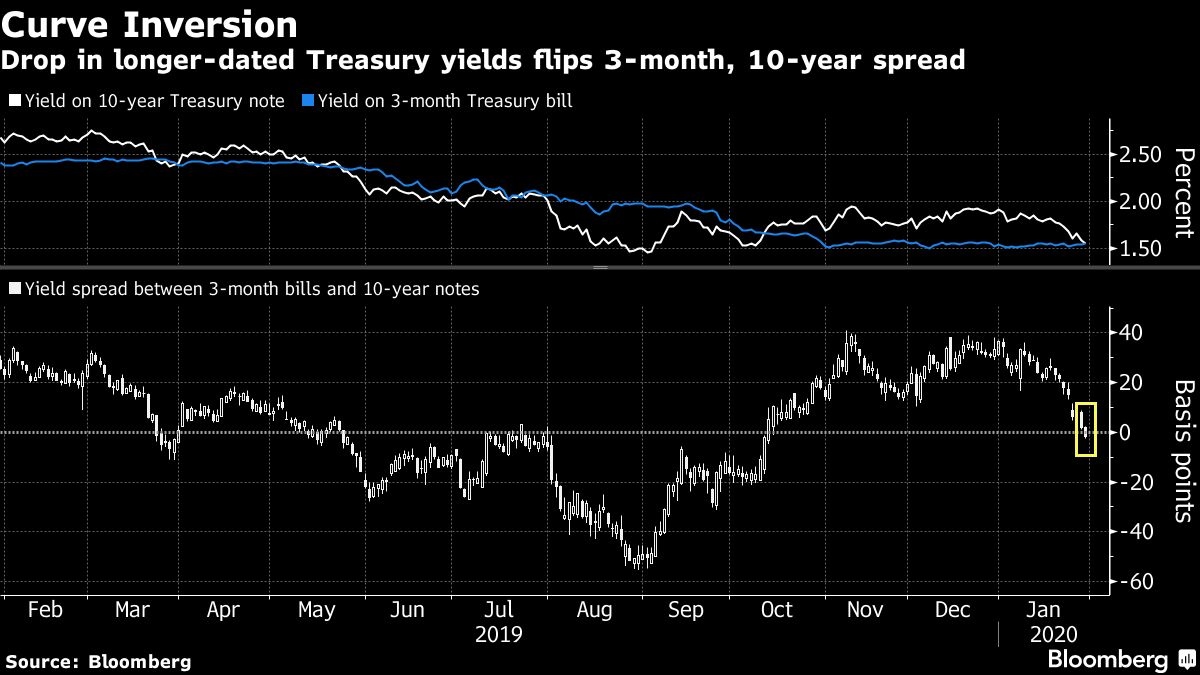Jan 30, 2020
U.S. stocks advance after WHO declares coronavirus emergency
, Bloomberg News
BNN Bloomberg's closing bell update: Jan. 30, 2020
U.S. stocks rose after the World Health Organization stepped up efforts to combat the coronavirus by declaring a global health emergency.
The S&P 500 Index erased losses after WHO said travel and trade restrictions were not necessary, removing at least temporarily a threat to the economy. The organization also commended China’s efforts to contain the disease. Equities have been under pressure since the outbreak last week, while havens from Treasuries to gold have rallied as investors fretted the virus would derail fragile growth around the world.
While the virus continues to spread and the human toll mounts, the WHO comments suggested that efforts to contain the outbreak are robust. For investors worried about the impact on global growth, that was enough to halt a flight from risk assets in the final hour of U.S. equity trading.

“The market maybe doesn’t really know how to process the impact of this particular event,” Kathryn Kaminski, chief research strategist at AlphaSimplex Group, said by phone. “People may be moving on headlines or there may also be general concern about not being sure what this means.”
Corporations are grappling with the rapidly spreading of the coronavirus that threatens a key growth market. Tesla Inc. expects a production delay in China, McDonald’s Corp. and Starbucks Corp. closed thousands of stores combined in the country while Apple Inc. is preparing for supply-chain disruptions. The hit to the world’s second-largest economy could exceed that seen during the SARS outbreak of 2003, according to Nomura Holdings Inc.
Traders also assessed a flurry of corporate earnings, with a rally in Microsoft Corp., Tesla and Coca-Cola Co. driven by solid results offsetting United Parcel Service Inc. and Facebook Inc.’s declines. Carnival Corp. sank as a cruise ship owned by the company was to remain in an Italian port until Friday, even after tests showed that a passenger who came down with fever and respiratory symptoms didn’t have coronavirus.
A key slice of the Treasury yield curve inverted for the first time since October, which may be a signal that traders are concerned about policy makers’ ability to counter headwinds. China’s offshore yuan briefly weakened past 7 for the first time this year. Oil slumped on growing alarm that the viral outbreak is crippling demand, prompting OPEC to consider an emergency meeting. Copper posted a record 12-day losing streak in London.
Elsewhere, the pound jumped just before the Bank of England surprised the market by voting 7-2 to keep its key rate unchanged. The euro rose after data showed an uptick in regional manufacturing sentiment.
Here are some events to watch out for this week:
South Korean chipmaker SK Hynix, Chevron, Caterpillar and Exxon Mobil report earnings on Friday.
The U.K. is scheduled to leave the European Union Friday.
These are some of the main moves in markets:
Stocks
The S&P 500 advanced 0.3 per cent as of 4 p.m. New York time.
The Stoxx Europe 600 Index decreased 1 per cent.
The MSCI Emerging Market Index dipped 2.2 per cent.
Currencies
The Bloomberg Dollar Spot Index fell 0.1 per cent.
The euro advanced 0.2 per cent to US$1.1033.
The Japanese yen appreciated 0.1 per cent to 108.89 per dollar.
Bonds
The yield on 10-year Treasuries fell one basis point to 1.57 per cent.
Germany’s 10-year yield dipped three basis points to -0.41 per cent.
Britain’s 10-year yield climbed three basis points to 0.542 per cent.
Commodities
The Bloomberg Commodity Index dipped 0.9 per cent.
West Texas Intermediate crude sank to US$52.14 a barrel.
Gold advanced 0.8 per cent to US$1,589.20 an ounce.







